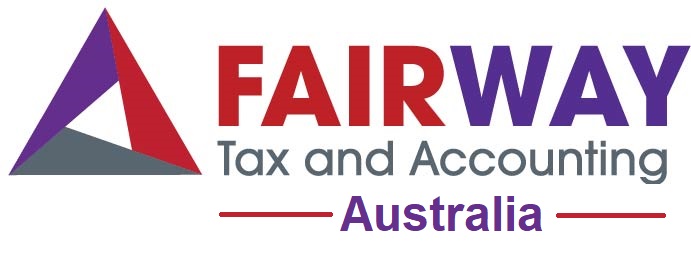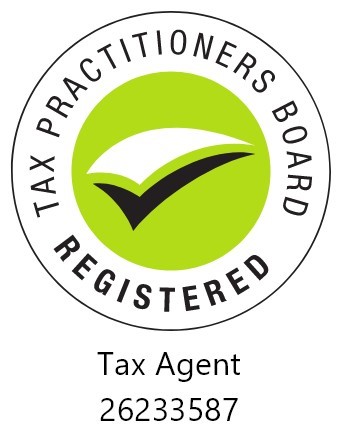After months of swirling speculation, the UK Chancellor, Rachel Reeves, delivered her first budget last night. The following is a summary of the key measures, affecting Fairway Tax and Accounting’s client-base.
Removal of Remittance Basis and Replacement with FIG Regime
As expected, the new Government has committed to continuing with the changes announced by the previous Government in March 2024. From April 2025, the Remittance Basis of taxation for non-UK-domiciled taxpayers will cease and be replaced by the FIG regime, for the first 4 years after a taxpayer becomes UK-resident following a period of 10 consecutive years of non-UK residence.
A policy document and draft legislation have been released, providing some more detail of these proposals. Many of the loopholes in the original Tory Government proposals have been closed and importantly the measures extend to trusts settled by the taxpayer.
Like the Remittance Basis, the FIG regime must be claimed in the Self-Assessment Tax Return and taxpayers making the claim, will lose their Personal Allowance and CGT Annual Exempt amount for the year of the claim, so an assessment will need to be made as to whether a claim is worthwhile.
The new measures also alter the Overseas Workday Relief provisions, which allow unremitted employment income relating to foreign employment duties to be excluded from UK taxation for the first 3 years the employee is UK-resident. The changes align the relief to the 4-year period of the FIG regime in a new Foreign Employment Election. Unlike OWR, the income pertaining to the foreign duties may be received in the UK, removing the need for separate overseas bank accounts for this income, but the value of the relief is limited.
Importantly, where a taxpayer has settled foreign assets into a trust, in which they retain an interest, and they do not qualify for the FIG regime, they will be subject to UK tax on the income and gains of the trust under the settlor-interested trust rules. This is going to bring a lot of trust income and gains within the UK tax net, and is especially relevant for traditional Australian Family Trusts.
Taxpayers who previously claimed the remittance basis and have unremitted foreign income, will continue to be subject to UK tax when previously unremitted foreign income is remitted to the UK, but there will be a series of transitional relieving measures available, including:
Rebasing of Capital Assets
This allows taxpayers who previously claimed the remittance to rebase foreign Capital Assets held on 5 April 2017 and disposed of on or after 6 April 2025 so that the UK only taxes the gain arising on the uplift in value from 5 April 2017.
Temporary Repatriation Facility for Previously Unremitted Foreign Income and Gains
This allows taxpayers who previously claimed the remittance basis to keep their unremitted foreign income and gains outside the UK tax net, to bring the unremitted funds to the UK and only face the Temporary Repatriation Facility (TRF) charge.
This is a short-term facility available for 2025-26, 2026-27 and 2027-28 only. For qualifying overseas capital repatriated in 2025-25 or 2026-27 the TRF charge will be 12% of the amount of capital repatriated and for 2027-28 the TRF charge will be 15%.
This treatment must be claimed by an election “the designation election” which must be made in the Self-Assessment Tax Return for the relevant year.
Changes to Inheritance Tax – Domicile to Residence-Basis
As part of the removal of the concept of non-UK domiciles discussed above, Inheritance Tax “IHT” will also be changing from a domicile-based tax to a residence-based tax. This affects the scope of IHT and whether it is limited to UK assets or extends to worldwide assets.
NOTE: UK assets are ALWAYS subject to IHT unless a specific exemption applies
At present:
- Where a taxpayer is UK-domiciled they are subject to IHT on their worldwide assets
- Taxpayer’s who are non-UK domiciled:
- Who were not born in the UK with a UK domicile of origin become “deemed-domiciled” in the UK and subject to IHT on their worldwide assets once they have been resident in the UK for 15 of the preceding 20 tax years
- Who were born in the UK and had a UK domicile of origin become “deemed-domiciled” when they are resident in the UK in 2017-18 or subsequent years and subject to IHT on their worldwide assets
The proposed changes introduce a new concept of a “Long-term UK resident”. Long-term UK residents are subject to IHT on their worldwide assets. The scope of IHT for companies and other corporate bodies and trusts is also linked to the Long-term UK resident concept.
For companies and other bodies corporate, if they are incorporated in the UK or subject to Corporation Tax in the previous tax year, on the basis they were UK resident, they will constitute a Long-term UK resident.
For trusts if the settlor is a long-term UK resident the trust will not be an excluded property trust – this is very significant for taxpayers who settled foreign property into offshore trusts before moving to the UK.
A taxpayer is a long-term UK resident once they have been UK-resident for at least 10 of the preceding 20 tax years. There is then a sliding scale to determine how long it will take when the taxpayer ceases to be UK-resident to cease to be a long-term resident (thereby removing their foreign assets from the UK IHT net) – it can be 3 to 10 years depending on the taxpayer’s particular situation. This is a transitional rule to smooth the impact of the change for people who have been resident in the UK for more than 10 years but less than the 15 currently needed to make them deemed-domiciled.
For many taxpayers this represents a significant change to the scope of UK IHT and something that will need to be factored into their tax and succession planning strategies even after leaving the UK.
Capital Gains Tax Changes
There was a lot of speculation about the potential for significant changes to CGT, whilst there are changes, they are perhaps not as dramatic as the speculation predicted.
Change in Rates – Non-Residential Property Assets
The rates of CGT for non-residential property disposals will be immediately aligned to those for residential property disposals, ie 18% (rather than 10%) in the Basic Rate Band and 24% (rather than 20%) in the higher rate. This will apply for all disposals on or after 30 October 2024.
The rate for trustees and personal representatives will also increase from 20% to 24% for all disposals on or after 30 October 2024.
For disposals qualifying for Business Asset Disposal Relief (formerly Entrepreneurs’ Relief) the rate will increase from 10% to 14% for disposals from 6 April 2025 to 5 April 2026 and from 14% to 18% for disposals from 6 April 2026.
Where contracts for disposal were entered into before 30 October 2024 but not completed, the draft legislation introduces some anti-forestalling measures to allocate the timing of the tax event. Whether these disposals will qualify for the old or new rates will depend on the purpose of the transaction, so taxpayers should expect close examination of disposals where the contract was entered into before 30 October 2024, but completion is on or after 30 October 2024.
Changes to Rates and Lifetime Limit – Investors’ Relief
The rates of CGT for disposals subject to Investors’ Relief (ie the reduced rates of CGT applicable on disposals of ordinary shares in unquoted trading companies) will increase from 10% to 14% from 6 April 2025 and from 14% to 18% from 6 April 2026.
In addition, from 30 October 2024 (Budget-Day) the lifetime limit on the value of disposals qualifying for Investors’ Relief has been reduced from £10m to £1m
Capital Gains in Liquidation of LLP
For all liquidations of LLPS that commence on or after Budget Day (30 October 2024) where assets contributed to the LLP by members are disposed of in a liquidation to that member or a company or other person connected with them a Capital Gain will arise, equivalent to the gain that would have arisen on the contribution of the asset to the LLP had s59A TCGA 1992 not intervened to ignore that gain on contribution of the asset to the LLP.
Inheritance Tax “IHT”
The Nil Rate Band and Residence Nil Rate Band will remain fixed at their current levels:
- £325,000 NRB
- £175,000 RNRB (tapered for estates exceeding £2m)
For 2028-29 and 2029-2030
The changes to the basis of determining the scope of IHT have already been discussed above.
The Government also announced in the Budget plans to include the value of most unused pension fund balances and death benefits in the IHT death estate from 6 April 2027. A consultation on these proposals has been announced, seeking responses on the process to implement these changes. The consultation will close on 22 January 2025, and we will then have to watch for the next developments.
These changes will result in the need for a significant shift in IHT planning strategies and for many non-UK nationals will increase the focus on transferring pension fund balances out of the UK.
Stamp Duty Land Tax – increases to higher rates on additional dwellings and purchases by non-natural persons
Individuals purchasing additional residential property (eg second homes or buy to let) and non-natural persons (companies and trusts) acquiring residential property will be subject to increased surcharges for all transactions with an effective date on or after 31 October 2024.
The higher rates of SDLT will rise from 3 to 5% above the standard residential rates of SDLT for:
- Purchases of additional residential properties by individuals and
- Purchases of residential properties by companies
And the single rate payable by companies and other non-natural persons purchasing residential properties worth more than £500,000 will increase from 15% to 17%
This is part of the Governments continued focus on feeing up housing stock for main home and first-time buyers.
VAT on Private School Fees
From 1 January 2025 VAT at 20% will be due on all education or boarding services provided by a private school or connected person to children of compulsory school age. Pre-payments of fees or boarding services on or after 29 July 2024 that related to terms starting on or after 1 Jan 2025 will also be subject to the 20% VAT rate.
Restrictions on QROPS Transfers to EEA or Gibraltar Funds
Transfers from UK registered pension funds on or after 30 October 2024 to QROPS funds established in the EEA and Gibraltar will no longer benefit from the exclusion from the Overseas Transfer Charge “OTC” – this will mean that a 25% OTC will apply to all QROPS transfers to funds established in EEA and Gibraltar going forwards.
Person Tax Offshore Anti-Avoidance Legislation – Call for Evidence
The Government is looking to reform the personal tax offshore anti-avoidance rules in 2025 with a view to removing ambiguity and uncertainty (including the Transfer of Assets Abroad and Settlements legislation) and has released a Call for Evidence with a view to starting this process. The call for evidence closes on 18 February 2025.
The current rules are complex and confusing, so we will watch this space with interest and feedback to our clients when we know more about the plans and their impacts.
Employers’ National Insurance Changes
From April 2025 Employers National Insurance (Class 1 Secondary) contributions will increase by 1.2% to 15% and the threshold over which these must be paid will reduce from £9,100 to £5,000.
This represents a significant increase in employment costs for the employer.
To offset this impact for small businesses the Employment Allowance will also increase from £5,000 to £10,500 from April 2025.
Companies
The headline rate of Corporation Tax and small profits rate and marginal relief will be held at the current rates.
The current Capital Allowances regime, including the £1m Annual Investment Allowance will be maintained.
The current R&D reliefs – RDEC and enhanced support for R&D intensive SMEs will be maintained and Patent Box will continue.
Duty Rate Changes
There were the usual duty rates announcements, including:
- 2% rise in Tobacco Dute (above RPI) and 10% for hand-rolling tobacco
- Plans to introduce a levy on vapes
- Fuel Duty freeze extended for another year
- Alcohol duty to rise in line with RPI but a cut of 1.7% to draught duty – reducing the cost of a pint at the pub by 1p
- Air Passenger duty:
- To increase by £2 for economy short-haul flights
- 50% increase for private jets to £450 per passenger per flight
For more detail on any of these measures please contact Joanne Lamberth: joanne@fairwaytax.com.au



